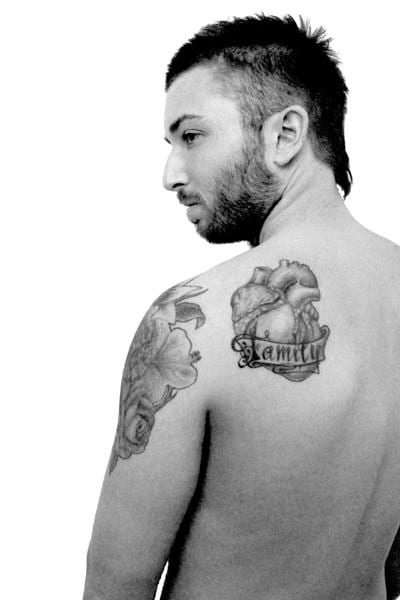“I think I’m going to be sick,” he heaved into the phone as I confirmed his worst fear.
I started apologizing profusely and lamenting that I thought he already knew. How could he not have known? I took part in the AIDS Walk four years running, my picture has been in the papers for my HIV/AIDS activism numerous times, he knows my ex-boyfriend — they’re friends.
“Dude,” he wheezed. “I didn’t know you had HIV!”
Over the next half hour on the phone I tried to reassure him.
“My counts are undetectable,” I told him. “We practised harm-reduction techniques; you were on top and you’re circumcised. I’ll go with you to be tested, whatever you need.”
“I might call you again and ask you more questions,” he replied after a long pause. Then he hung up.
I got a phone call a week later; this time he was in a much calmer mood. He had been to the clinic for testing, but he wouldn’t reveal the results.
“I want you to always wonder,” he said.
He seemed intent on teaching me a lesson, quoting the law to me, telling me what I did was sexual assault.
“The police might be visiting you,” he threatened.
The night we were together I suggested we use a condom, but he declined.
“I’m just going to stick the head in a little,” he said, as he teased my hole before shoving his cock balls-deep into my butt.
“I’m going to breed your hole,” he whispered into my ear as I moaned softly and clutched him closer, my legs in the air.
He didn’t ask my status and I didn’t tell.
It was the end of his final phone call to me that typifies the role stigma plays in perpetuating HIV stigma. He pleaded for me never to reveal that we had had sex. If he was going to end up HIV-positive, he said, he didn’t want a soul to know. As upset as he was, he couldn’t understand how his own prejudices might have contributed to this moment.
“I would never have had sex with you if I had known you were HIV-positive, dude,” he said.
This happened years ago. If it had happened today, he may very well have followed through with his threat to call police, and I may very well have gone to jail.
According to the Global Network of People Living with HIV, Canada boasts the second highest number of HIV-transmission convictions in the world. Our courts consider only exposure. Intention, even actual transmission, need not be proven to secure a conviction.
The erroneous assumptions people make about each other are a key factor in HIV transmission. Learning how and when to disclose your HIV-positive status is, in fact, a process, and there are no best practices.
I am sharing the experience of what I went through in the hope of illustrating how the criminal justice system fails to account for the complexities and nuances of disclosure. I also want to acknowledge what I’ve been hearing from many HIV-positive people with each new failure-to-disclose charge that is filed: “That could just as easily be me.”
I have been blessed with time and opportunity to explore how to navigate disclosure issues. I’ve learned from my experiences, but there are thousands of men and women now living with HIV in Canada who have no chance to do the same. The law as it stands now is undermining public health and our basic human rights, interfering with our dominion over our own sexualities, and persecuting, rather than supporting or defending us.


 Why you can trust Xtra
Why you can trust Xtra


